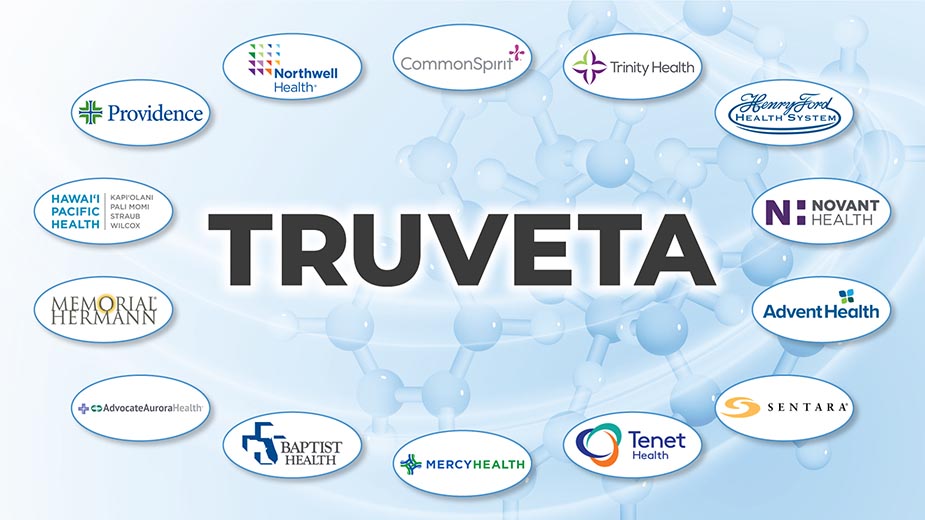YOUNGSTOWN – For decades, health-care systems have collected data on everything from what course of medications patients take to their age to their blood pressure. All of it is stored in each organization’s own system, typically accessible only by those working there.
But for Bon Secours Mercy Health, that approach is going to change as the health-care system joins Truveta, a data platform shared by 13 other organizations across the country.
With that data coming in from all corners of the United States, from Hawaii to Florida to right here in northeastern Ohio, researchers can employ artificial intelligence to gather new insights that can create better outcomes for patients.
“That information has never had a significant opportunity to expand beyond the four walls of [an individual] health-care system. Truveta is a great opportunity to work with like-minded health systems and build a continuum of data together,” says Deepresh Chandra, chief analytics officer for Bon Secours Mercy Health. “Then we can apply it to some of the pressing questions we have within health care about addressing equity, delivering care and applying it to newer diseases and predictors.”
Through Truveta, health-care providers can look at all the variables in the course of care for certain conditions and determine what can lead to the best outcomes.
“We know that there are inequities in health care and differing outcomes, even in looking at how populations have been affected by COVID,” says Dr. Justin McGoldrick, Bon Secours Mercy Health’s chief research and innovation officer. “How do we pull out bits of information from our combined health-care communities to look at similar cohorts and find outcomes that have been improved by certain interventions? We have the ability to determine, A, where there may be vulnerable populations we haven’t identified before or, B, identifying a population that’s benefitting from a therapy we haven’t identified readily.”
Alongside Bon Secours Mercy Health as partners in Truveta are AdventHealth, Advocate Aurora Health, Baptist Health of Northeast Florida, CommonSpirit Health, Hawaii Pacific Health, Henry Ford Health System, Memorial Hermann Health System, Northwell Health, Novant Health, Providence health system, Sentara Healthcare, Tenet Health and Trinity Health. Collectively, the health-care systems represent millions of patients across 40 states.
As the systems try out new methods of treatment or trials of new procedures, the others will be able to gather insights, even if they aren’t conducting the testing themselves. In addition, some health-care systems focus on certain areas of care.
By combining the flow of data for research purposes, an organization like Mercy Health can access information that may fall outside its traditional area of expertise.
“Health systems, in their current state, are involved in process improvement, quality improvement, varying degrees of research and advocacy of patient care and outcomes. This allows us to take that to a different level,” McGoldrick says.
Implementing the research findings garnered from Truveta will be a phased process, Chandra says. First is to simply understand “how the water runs through the pipes: how we get data, extract it, de-identify it, put it together and start setting it up so we can start answering the questions we expect it to answer.”
After that step, Bon Secours Mercy Health will look at how the information can be applied to the communities it serves and, finally, how those insights can be brought to patients in order to improve care and lower the cost of providing it. In some cases, such as disease research, that could take a few years, Chandra says, but in more pressing situations such as the coronavirus pandemic, information could be delivered much faster.
“When we start thinking about socioeconomic factors in care, the efficacy of emerging treatments and epidemiology, what better time than now to try to expand on these capabilities?” McGoldrick says. “We need to understand treatments and if our responses to epidemics are beneficial or not.”
